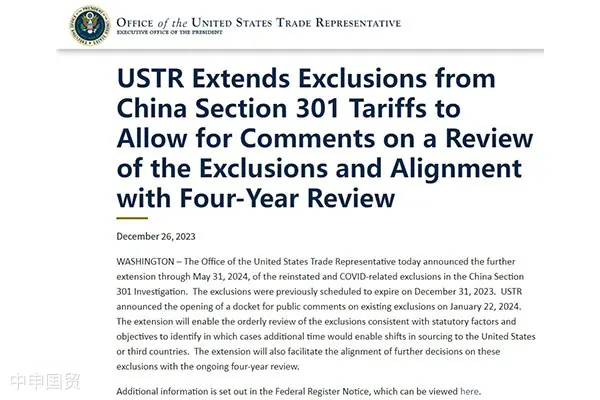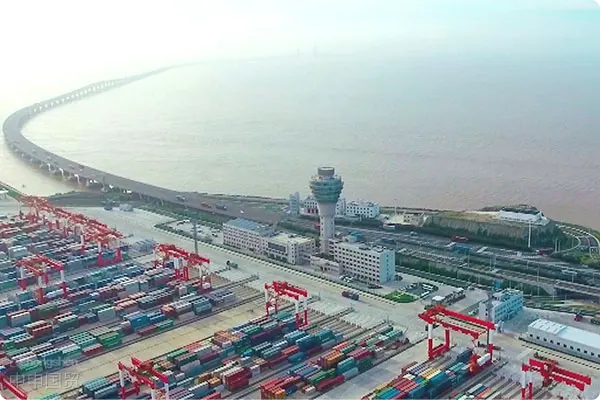- Shanghai Zhongshen International Trade Co., Ltd. - Two decades of trade agency expertise.
- Service Hotline: 139 1787 2118
The Office of the United States Trade Representative (USTR) recently announced the continued extension of tariff exemptions for 429 Chinese products, signaling an important shift in U.S.-China trade relations. This decision covers 352 Chinese export products to the U.S. and 77 Chinese medical protective products, marking their continued eligibility for tariff relief until May 31, 2024.

Previously, on September 6, 2023, the U.S. had already decided to further extend the tariff exemptions for these products, from September 30 of that year to December 31. This latest extension will allow relevant Chinese enterprises to continue benefiting from reduced tariffs in the coming months.
It is understood that the announcement also mentioned that the USTR is actively soliciting public input to determine whether to further expand the exclusion scope for specific products. Starting January 22, 2024, the USTR portal will be open to the public for submissions until 11:59 PM (Eastern Time) on February 21.
The 352 Chinese export products to the U.S. include various industrial and consumer goods, such as hot roll laminators, water filters, garage door openers, animal feeding machines and accessories, electric motors, motor speed controllers, sensors, aluminum electrolytic capacitors, connectors, electroplated zinc anodes, carbon dioxide analyzers and parts, scanners, polyethylene films, motorcycles, crab meat, artificial graphite, catalysts, etc. The tariff relief for these products is undoubtedly good news for Chinese enterprises.
Meanwhile, the 77 Chinese medical protective products include disposable plastic filters, ECG electrodes, ultrasonic scanning devices, otoscopes, anesthesia masks, printed circuit board assemblies, X-ray examination tables, multi-leaf collimators, polycaprolactone thermoplastic masks, sodium metal, powdered silicon monoxide, LED indicator panels, disposable gloves, non-woven fabrics made of synthetic fibers, hand sanitizer pump bottles, plastic containers for disinfectant wipes, and compound binocular optical microscopes. These products represent an important export market for Chinese medical equipment and consumables manufacturers.
The U.S. extension of tariff exemptions for these Chinese products not only reduces export costs for Chinese enterprises but also helps maintain stability in U.S.-China trade relations. At the same time, this decision may reflect the U.S. dependence on certain Chinese products and the importance of Chinese goods in global supply chains.
Original announcement:Section 301 COVID-Related Exclusions Extension FRN
Related Recommendations
? 2025. All Rights Reserved. Shanghai ICP No. 2023007705-2  PSB Record: Shanghai No.31011502009912
PSB Record: Shanghai No.31011502009912










